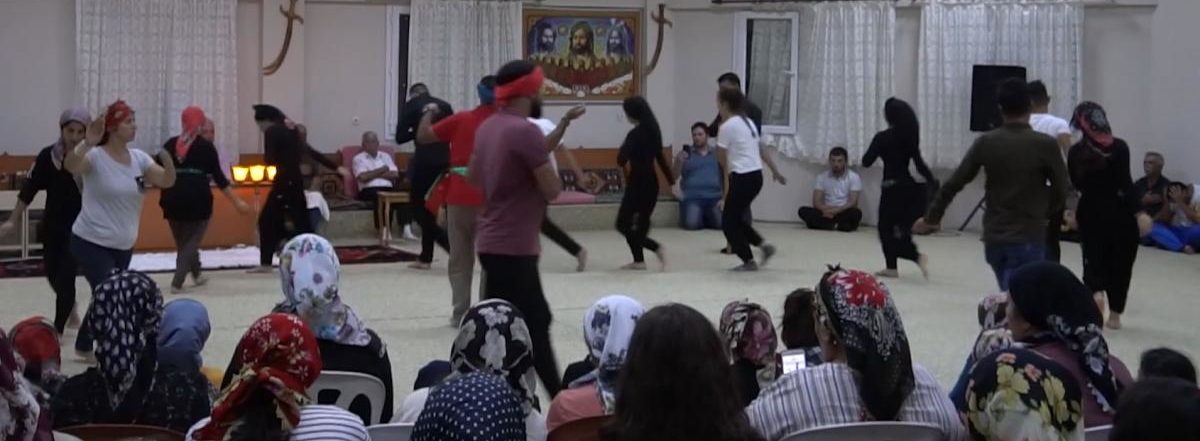The construction of two dams in Turkey’s south-eastern province of Adıyaman will lead to the forced migration of 5,000 members of the country’s Alevi community from lands where they have lived for thousands of years.
Locals and officials see the projects as part of a long-running political plan to assimilate the country’s Alevi religious minority, who adhere to a branch of Islam that combines Shi’ite, Sufi, and Sunni traditions, into the wider Turkish populace.
Ahval spoke to locals in Adıyaman villages under threat by the Gömükhan and Koçali dams, which are being built over agricultural lands that provide for thousands of farming families from the Alevi faith.
The first dam, the Gömükhan, which is under construction in the town of Yaylakonak, will displace a total of eight villages inhabited by Alevis. This means thousands of families who make a living from farming and animal husbandry will have to leave their ancestral land to survive.
The project envisages rechanneling the waters of the Girlevik and Çatdere streams into the Gömükhan Dam, which would effectively be a death knell for families’ old way of life.
Officials are also looking to a second hydroelectric power station project in nearby Uzunköy, in what is another threat to the area’s 95 percent Alevi population.
Locals’ concerns centre on the projects’ threats to the wildlife of the region, in addition to its social makeup.
The muhtar, or village headman, of Yaylakonak, Hasan Yaşar, said the project was ringing alarm bells for locals who are already struggling to get by.
“If you cut the irrigation sources of these small plots of land, too, these people will be forced to resettle elsewhere or they will die of hunger,’’ Yaşar said.
“All of the people of this region are against the hydro-electric power plant. If this dam and the plant are built, then 5,000 people stand to be adversely affected. We don’t want these projects here,’’ the muhtar said.
The Koçali Damn in Adıyaman province is set to leave the lands of the Kurdish Alevi villages of Çatalağaç, Doğanlı, Gökçay, Bağlıca and Ağaçkonak under water.
The extent of land that will be affected by the Koçali dam is greater than the region that will be irrigated by the project, the lawyer of the No to the Koçali Damn Platform, Bülent Çınar, explained.
“The dam will effectively divide a conservation area into two. This project will lead to the serious financial, social and transport problems for the people of our region,’’ Çınar said.
The lawyer believes the government is looking to do much more than build dams in the region.
“The real aim of this project is the assimilation of the Alevi Kurds living there,’’ he added.
Alevis have long struggled for recognition in Turkey, where they form the largest religious minority of some 15 to 25 million. Alevism has never been recognized by the Turkish state and the group has been fighting for legal recognition of their places of worship known as cemevis for decades.
The project is named after the Sunni village of Koçali, which will not be affected by the construction of the dam, and local resident Hamdi Yıldırım agrees that it has less to do with need and more to do with politics.
He says this is not a new project, but one that the Turkish government has been planning for four decades.
“The project will bring with it unfavourable conditions for the villages and fields it will encompass,’’ Yıldırım explained, calling it a great injustice.
The muhtar of Bağlıca, Erhan Çınar, said that no service or expropriation had been provided to the village for 125 years, leading to village residents feeling victimised and stuck in a region where they have no prospects for the future.
“We want an area within our own borders, we don’t want for our villages to be evacuated,’’ Çınar said.
“There could be cheaper and less environmentally damaging projects devised to provide irrigation and energy … there was no mention of the possible devastation that would be caused by this project when it was being drawn up,’’ he said.
“It is through these small but arable lands that the local people are able to provide a living for themselves. And they will not be able to get by anywhere else,’’ he added.
Celal Demirci, the co-chair of the Adıyaman Democratic Alevi Association described the project’s destruction of Alevi villages as a kind of genocide.
“The dam and power station projects have reached their peak in Alevi lands such Dersim and Adıyaman as vehicles for Alevi assimilation,’’ Demirci said.
Demirci explained that the part of the Turkish state’s decades-long assimilation policy targeting the minority has manifest itself in such projects, which look to seize Alevi lands and force them into migration.
“If the dams are completed, the villagers will be sent to Aydın, where they will be forced to live in Turkish and Sunni towns,’’ he said, referring to government plans to resettle those affected by the project in the western province of Aydın, located on the opposite end of the country.

